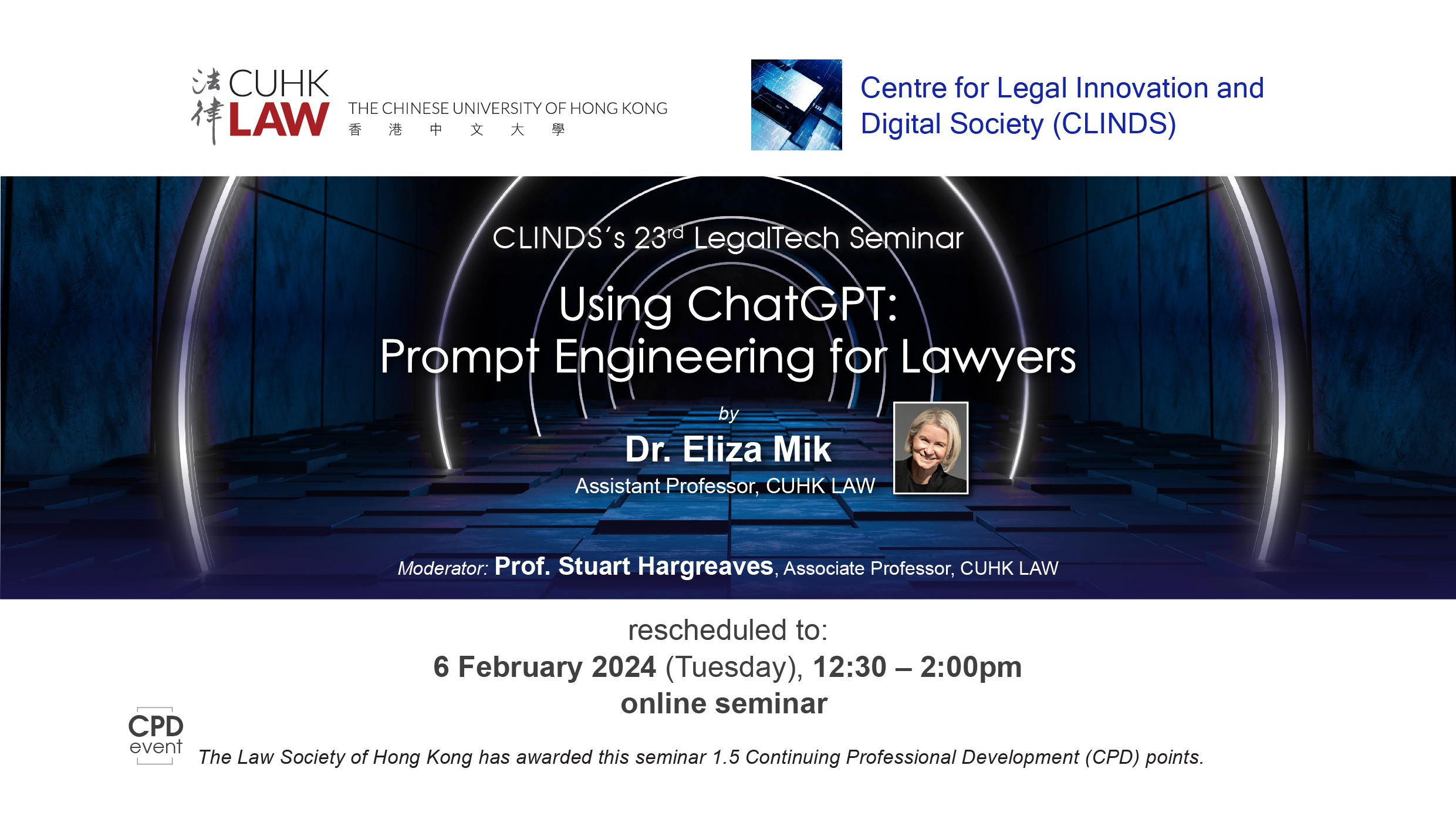CLINDS’s 23rd LegalTech Seminar - 'Using ChatGPT: Prompt Engineering for Lawyers' by Dr. Eliza Mik (Online)
6 February 2024
The unprecedented popularity of Large Language Models, or “LLMs” is often attributed to the introduction of ChatGPT, which enables non-technical users to directly interact with the model by means of a simple conversational interface and to observe the generation of responses in real time. This conversational interface requires users to input a certain amount of text, referred to as a prompt. Prompts often contain task-specific instructions or context that the model needs to generate an appropriate output. Although prompts are written in natural language and thus appear easy to create, crafting effective and generalizable prompt strategies is challenging. LLMs do not understand text in the same way as humans and will generate dramatically different output depending on small variations in semantically equivalent prompts. To leverage the incredible capabilities of LLMs, users must know how to “talk to computers” and how to give precise instructions. As prompts must be formulated, evaluated, and refined with great care, it is increasingly common to speak of “prompt engineering. This seminar will introduce the basics of prompt engineering from the perspective of the tasks commonly performed by lawyers. More specifically, the seminar will introduce the main prompting techniques as well as the basic cost implications of prompting LLMs with larger amounts of text.
The following questions are addressed:
- What is prompt engineering? How does it differ from fine-tuning?
- What are the basic prompt engineering techniques?
- What are the current technical limitations of prompting techniques?
- How to write effective prompts for the performance of legal tasks?
- From token limits to context window – how do we calculate the costs of prompt engineering?
